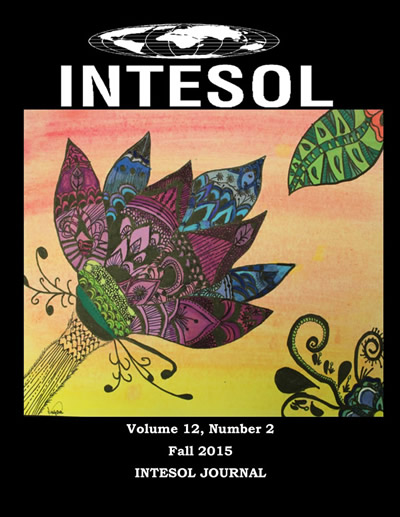Using Applied Theatre Toward Culturally Responsive Teaching
Abstract
Applied theatre and youth participatory action research engage students in powerful discussions on complex issues. A culturally responsive middle level teacher used applied theatre to motivate and empower academically and linguistically marginalized students and study the outcomes with the support of her university advisor. Their findings suggest that implementing strategies associated with applied theatre, youth participatory action research, and culturally responsive teaching have the potential to can help students develop new perspectives, learn to work with others, gain a sense of community, increase confidence through student voice, and obtain a greater comfort level with public speaking. This paper explores the effects of using these methods in a linguistically and culturally diverse Midwestern middle school classroom.
References
Creswell, J. (2003). A framework for design. In Research design:
Qualitative, quantitative, and mixed methods approaches (pp. 3-26).
Thousand Oaks, California: Sage Publications.
Famed Brazilian Artist Augusto Boal on the "Theatre of the Oppressed.”
(2005, June 3). Democracy Now. [Online News Program]. Retrieved
from
http://www.democracynow.org/2005/6/3/famed_brazilian_artist_augusto_boal_on
Foster-Fishmann, P. G., Law, K. M., Lichty, L. F., & Aoun, C. Youth react
for social change: a method for youth participatory action research.
American Journal for Community Psychology, 46, 67-83.
Freire, P. (1970). Pedagogy of the oppressed. New York, NY:
Continuum International Publishing Group.
Gallagher, K. & Service, I. (2010). Applied theatre at the heart of
educational reform: an impact and sustainability analysis. RiDE: The
Journal of Applied Theatre and Performance, 15(2), 235-253.
Kellett, M. (2010). Small shoes, big steps! Empowering children as
active researchers. American Journal for Community Psychology, 46,
-203.
Lankshear, C. and Knobel, M. (2004). A Handbook for Teacher Research:
From design to Implementation. Maidenhead, UK: Open University
Press.
Ozer, E J., Ritterman, M. L., & Wanis, M. G. (2010). Participatory action
research (PAR) in middle school: opportunities, constraints, and key
processes. American Journal for Community Psychology, 46, 152-
Prendergast, M. & Saxton, J. (Eds.) (2009). Applied theatre:
International case studies and challenges for practice. Bristol, UK:
intellect.
Rohd, M. (1998). Theatre for community, conflict, & dialogue: The hope
is vital training manual. Portsmouth, NH: Heinemann.
Van Sluys, K. (2010). Trying on and trying out: participatory action
research as a tool for literacy and identity work in middle grades
classrooms. American Journal for Community Psychology, 46, 139-


